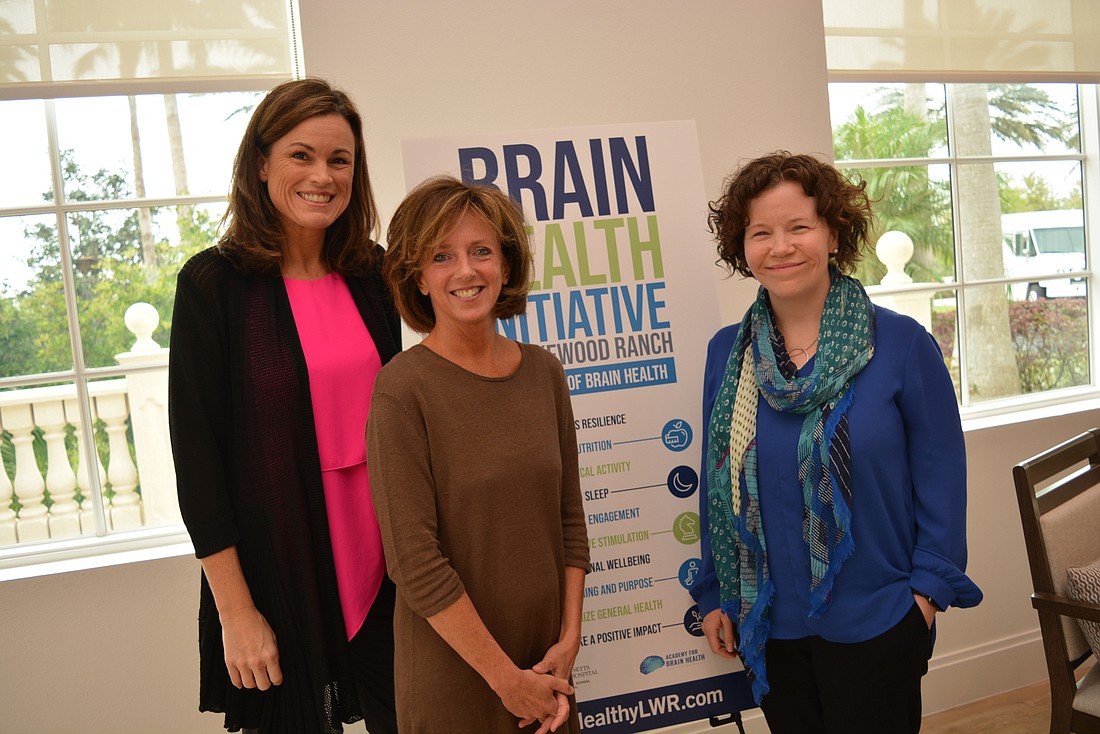- December 26, 2024
-
-
Loading

Loading

Residents of Lakewood Ranch soon will influence how the world views brain health and how brain health can be impacted.
Schroeder-Manatee Ranch used its financial clout to make it happen.
Lakewood Ranch developer Schroeder-Manatee Ranch, the Academy for Brain Health and Performance (ABHP) and Massachusetts General Hospital, a Harvard Medical School teaching hospital, announced Tuesday Lakewood Ranch will be the epicenter for a multigenerational, decades-long study of the brain and what helps keep it healthy.
The trio has launched the Building a Brain Healthy Community Initiative. Its mission is to create a brain-healthy culture throughout Lakewood Ranch that can be measured and replicated; to launch a Lakewood Ranch resident-based research study on brain health (called The ABHP, MGH Study of Brain); and to develop The Brain Health Innovation Lab, a multidisciplinary community of global researchers and professionals who will propose, financially support and execute research studies related to promoting and sustaining brain health.
SMR has committed $600,000 toward the initiative.
“It’s really about building a brain-healthy community,” said Stephanie Peabody, who serves as executive director of ABHP and the Building a Brain Healthy Community Initiative. “Without this collaborative effort, we can’t be successful. The work we are doing will outlive any of us.”
The study itself, which is still being designed, will follow about 3,600 Lakewood Ranch residents — volunteers — of all ages and demographics for the course of the study. Researchers have begun collecting information.
One year ago, SMR led the formation of the Lakewood Ranch Brain Health Coalition, comprising 22 stakeholders, such as Lakewood Ranch Medical Center, FCCI Insurance and the Lakewood Ranch Business Alliance, to help lay the groundwork for the initiative. The coalition has provided support for the concept, as well as participants for an initial survey of 454 adults and 42 youths from the community to help define the community’s brain-health priorities.
By September, they will hone in on creating an initial survey to use as a baseline for the study.
From May 2, 2020 through Feb. 28, 2021, they will perform the pilot study, which includes the initial survey of participating residents. At that time, the initiative also will launch the Brain Health Innovation Lab, a concept to bring together researchers, investors and others to evaluate brain health solutions as data emerges.
“The economic development benefits are off the charts,” said SMR CEO and President Rex Jensen. “There is a blurry line between vision and hallucination and this is on the extreme side of vision.”
Jensen is impressed with Peabody.
“Her energy is all over the place,” Jensen said. “She is like a flock of hummingbirds in a phone booth.”
Initiative researcher Erin Dunn, an epidemiologist and Harvard Medical School professor of psychology at Massachusetts General Hospital, said the survey will track information such as stress levels, sleep, nutrition, social engagement, exposure to sunlight and other factors to see how they affect brain health long term. Although many brain studies target specific illnesses, like migraines or Alzheimer’s disease, this study will collect all data related to brain health to see what correlations can be found and used to identify health risks or tools for intervention of various conditions.
“We’re trying to study people holistically, understand parts of life that affect brain health,” Dunn said. “This is an opportunity for us to be innovative.”
The project is inspired by the long-term, ongoing Framingham Heart Study, which was commissioned in 1948 by the National Heart, Lung and Blood Institute and Boston University. It now is credited with uncovering the effects of smoking on the heart, the relationship between high cholesterol and heart attacks and the benefits of aspirin and a healthy diet.